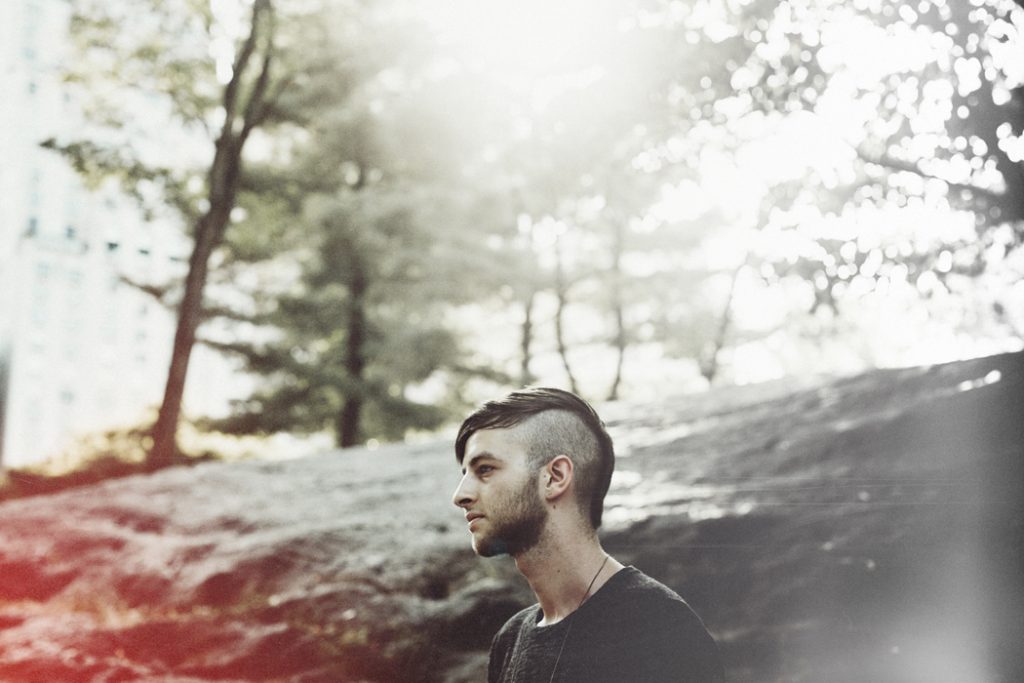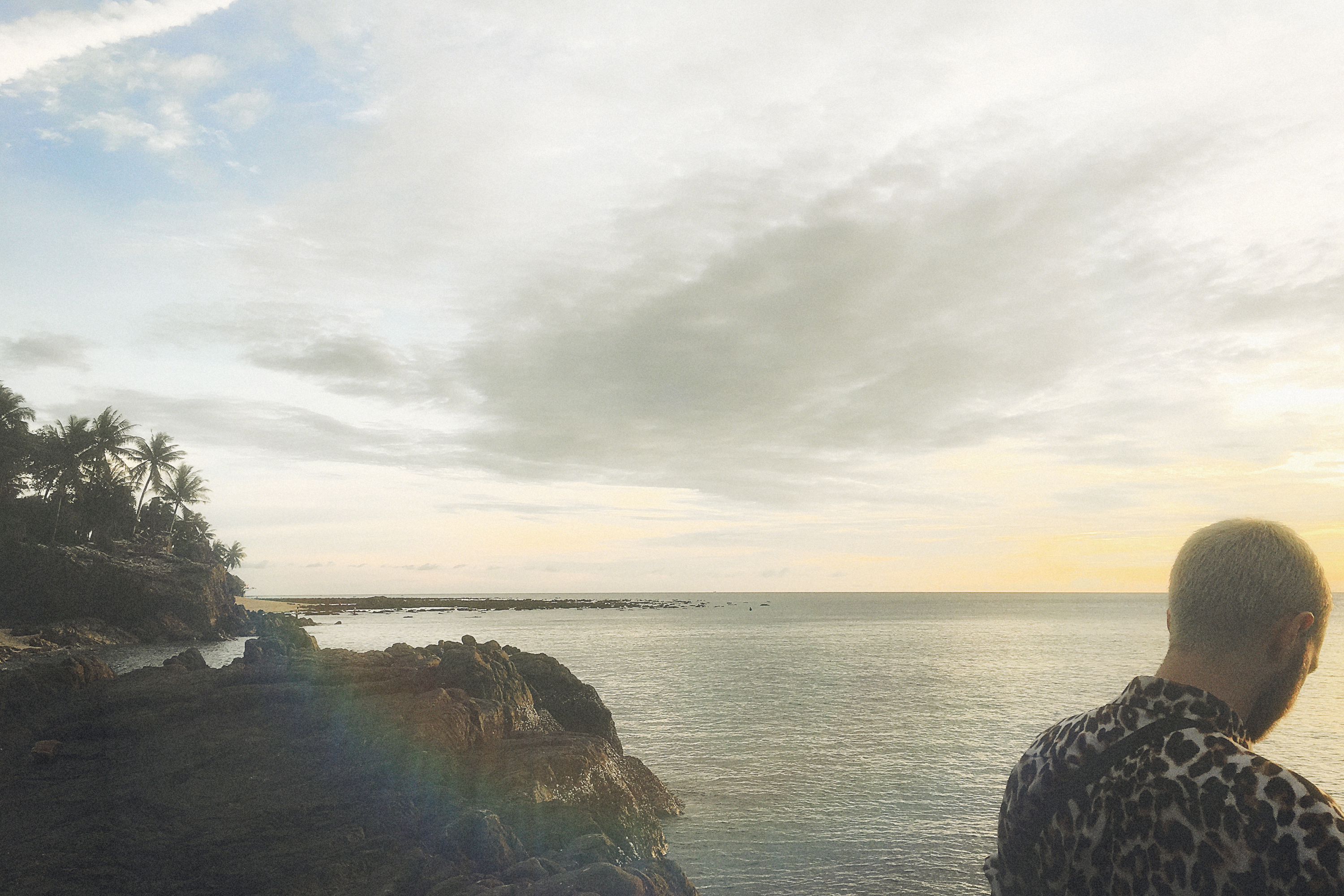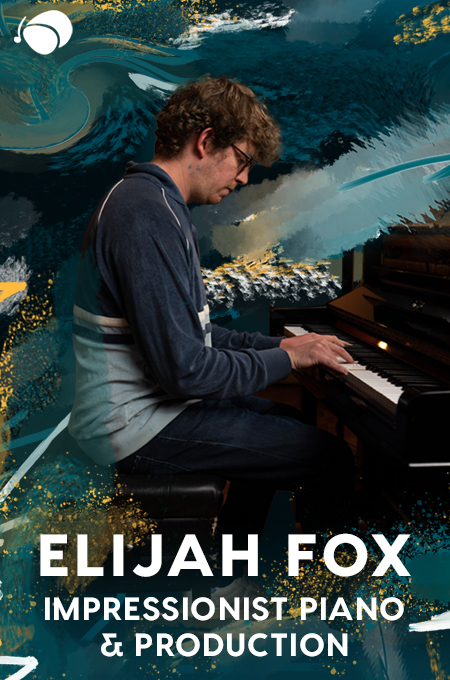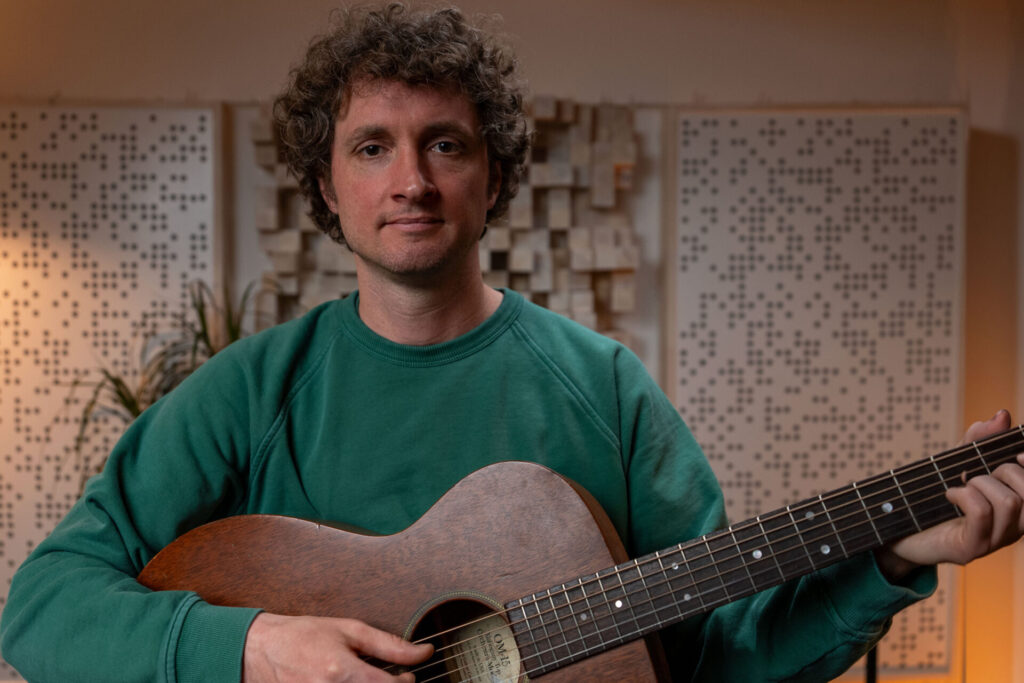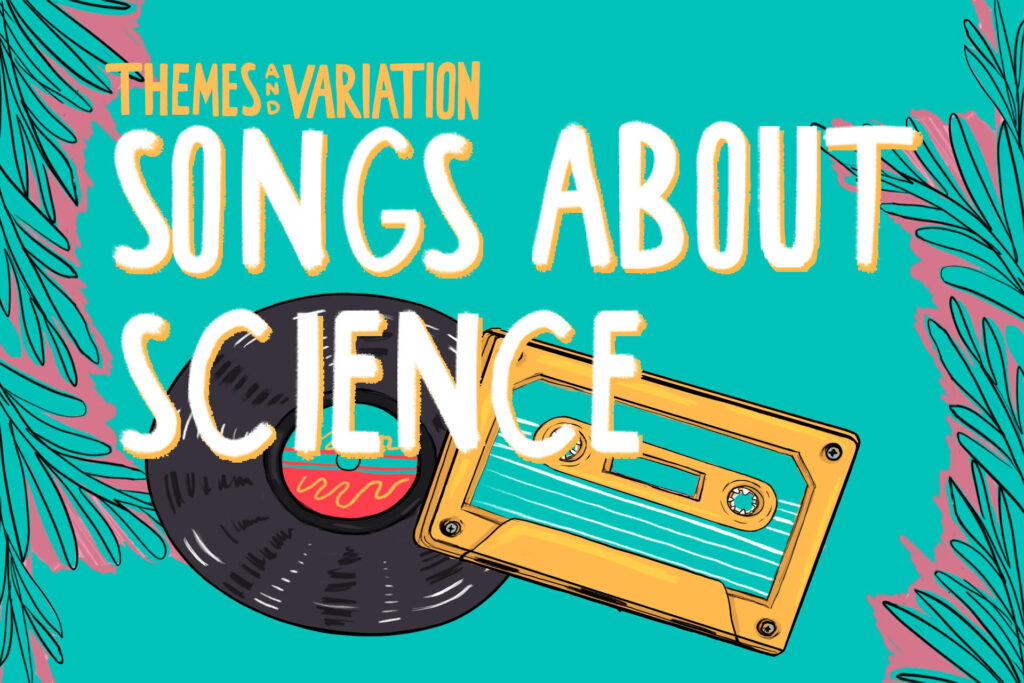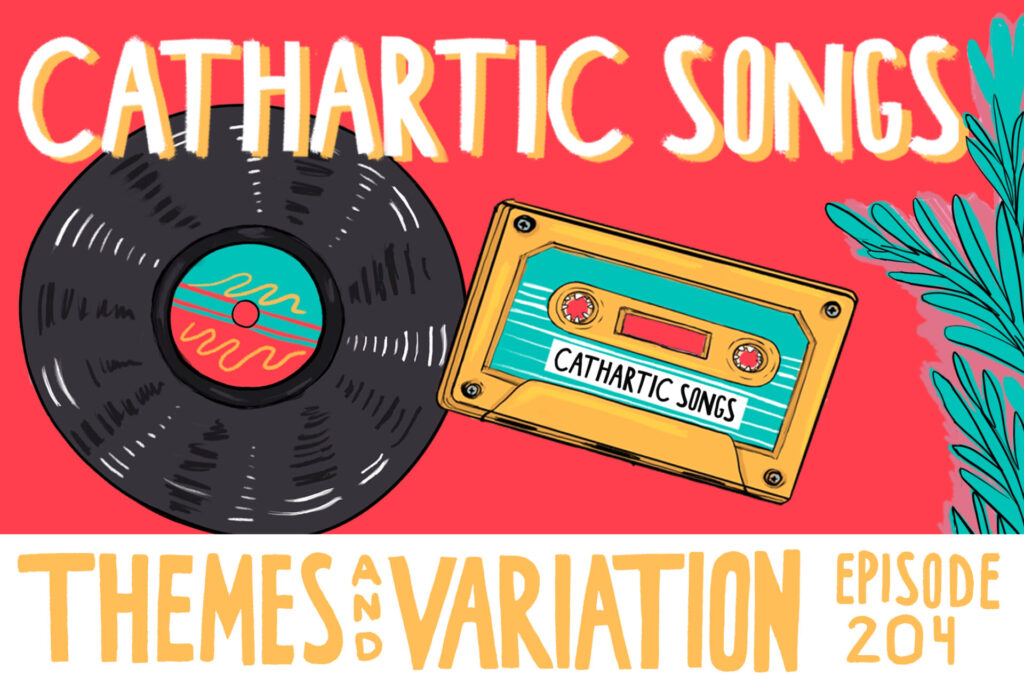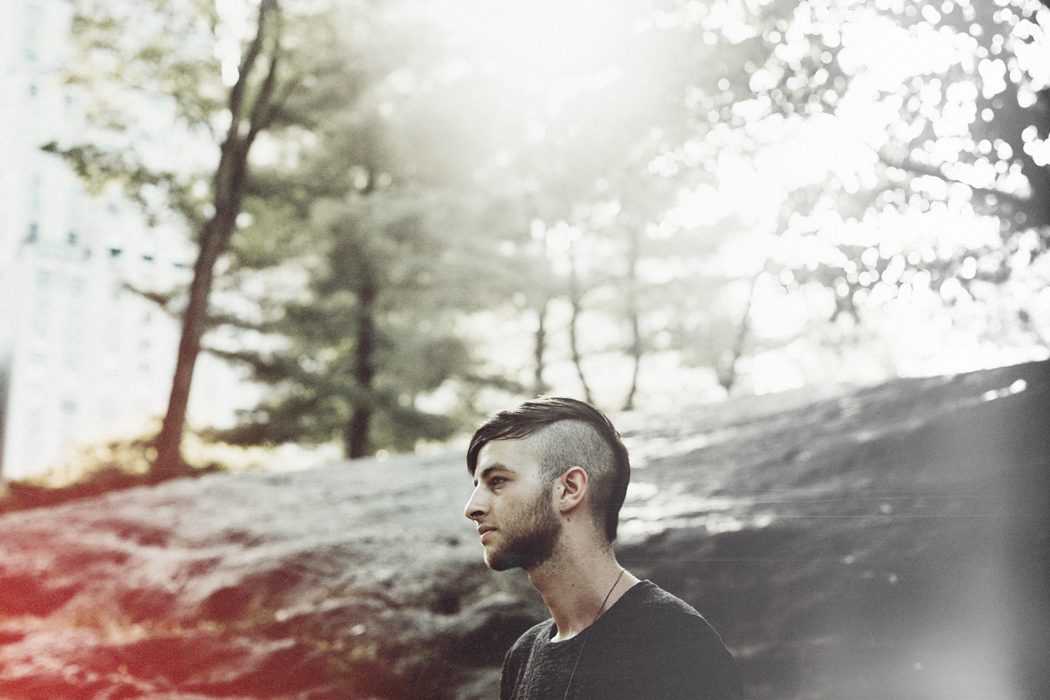
Today we’d like to turn the spotlight toward a Soundfly Mentor who has been helping musicians achieve their goals and reach new heights almost since the beginning. Introducing Sam Friedman, an electronic producer and songwriter based in Brooklyn who releases music under the monikers Nerve Leak and Past Palms.
Sam’s work has been featured on popular Spotify playlists and praised by major publications like The Fader and Bullett Magazine, and he’s created music for major ad campaigns including Taco Bell, Honda, Skechers, Coke, Converse, and more. While he predominately works in the electronic and hip-hop world today, his experience with various genres such as jazz, indie, trap, and EDM, gives him a unique gift to help students from diverse backgrounds.
Sam works primarily in Ableton Live and is an expert at helping students master their production processes and techniques to create more professional-sounding final results. Whether you want help making fuller beats or a more dynamic arrangement, Sam can help you dive deeper into your DAW and figure out how to meet your goals. We asked him some questions so we could better introduce you to his creative process and coaching methods. (*To learn more about Soundfly mentorship, click here.)
Click here to tell us about your musical goals and apply to work with Sam on your next project!
Can you describe the music you make and how you make it?
My most recent project, Past Palms, blends lush ambient soundscapes, warm nature samples, and distorted, bass-heavy beats. My previous music as Nerve Leak was much darker and featured lyrics, but the mood and space is similar. I love experimental music that fits into a pop structure.
I create everything in Ableton, using a mixture of samples, MIDI instruments, and recordings of my voice. Typically, I start with manipulating some type of sample that catches my ear. Once I have an atmosphere down, I will create a skeletal drum beat — usually just kick and snare. Then, I just pile on more and more layers until I have a solid loop. Then, it’s all about breaking that loop out into a song. Once a structure is established, I work on dynamics and movement. I typically mix as I go, as I like my songs to sound good right away, but there is always a final mix-down at the end where I really tighten up each sound as best as possible.
What are the types of Headliners Club sessions that you feel most comfortable working on with students?
I am open to working with anyone who is looking to take their production in new directions, whether you’re just starting out and need foundational lessons or if you’re already well-established but in need of a second pair of ears to help guide you to a more professional finished product. My expertise lies in Ableton, but the general principles of production, mixing, sound design, and arrangement are the same across all DAWs.
One of my favorite types of Headliners Club sessions is when I get to work with an artist who has a great sound but isn’t always able to turn their ideas into complete songs. Working together, we’re able to take demos and half-complete ideas and flesh them into bigger statements. I also love working with musicians who know the sound they’re looking to achieve but just needs some guidance, both on a technical and personal level, in order to really achieve that vision. But all in all, I am happy to work with any musician who is passionate about electronic production and exploring new ways to express themselves.
Who are you listening to right now?
In this very moment, I am listening to Julie London. I love her smokey, soulful voice and jazzy instrumentals. But in general, I’m a bit all over the place, but generally listening to more dreamy music like Grouper, Flying Lotus, Arca, Frank Ocean, Teebs, Burial, Clams Casino, and Beach House. I love when music feels blurry and otherworldly. There’s a time and place for traditional instrumentation (and I do love a good Sufjan Stevens ballad), but I typically gravitate to more surreal-sounding music. I love the futuristic space it exists in, almost as if you’re exploring the unknown because there are so few traditional sounds to grab onto.
“The best way to channel inspiration is to stay busy and work. Set up your studio in a way that makes it as easy as possible to work.”
What was your favorite ever concert experience and why?
In recent memory, I would have to say seeing Frank Ocean at Panorama Festival takes the cake. We pushed as close to the front as possible — something I haven’t done since I was a teenager. When Frank came on, I genuinely felt pure euphoria and joy. Not only was he incredible and the production stunning, but the energy was just so inspiring. Everyone knew every word to every song. It felt like I was a part of something bigger for a moment. Immediately after his set, I lost my phone (and never found it), but I really didn’t even care because I was just so mesmerized.
Where do go to find inspiration for your work?
With Past Palms, I wanted to create a body of music that encapsulated the feeling of being surrounded by an oasis of tropical indoor plants. I have filled my home with over 50 plants as a way to survive the industrial bleakness of New York City. Then, one day, I was looking at all of my plants, and turned to my girlfriend and said, “I want to make tropical music.” I didn’t know what that meant, but there was a feeling.
Once I felt that inspiration, I started listening to the most lush and ambient beat music I could find — specifically Clams Casino and Teebs — and I just channeled that energy into my creative space. I bought a huge Chinese fan palm and put it directly on my desk, so every time I look up from my setup, it’s right there.
Really, for me, the best way to channel inspiration is to stay busy and work. Set up your studio in a way that makes it as easy as possible to work. If wires are everywhere or things are constantly out of reach, you’ll likely avoid using those resources. Make your space efficient. Don’t assume your inspiration will hang around. Capture it. Use up every last drop. And when it runs dry, keep working. Don’t rely on “inspiration” to write, rather, rely on your talent and experience. Even ideas that seem bad at first can become brilliant.
“I used to think practice was the most important thing in the world, but I eventually realized that living your actual life is much more valuable than being stuck in the practice room every day.”
How do you balance work and creativity?
As I mentioned, I live in New York City, and obviously it isn’t cheap. I am lucky enough to make my living in the music industry, but not every penny I earn comes from my creative artistic pursuits. I also work in live music, teach, and write music for TV/film. Luckily, since all of my income is music-related, it doesn’t usually feel like work (well, hard work). Since none of my jobs are full-time, I have a pretty flexible schedule. Some weeks, I am full of free time to create, and others, there’s really just no time to dig in.
However, I’m a firm believer that an hour of focused productivity can be just as useful as a full day of half-assed productivity. If I have the day off, I might sit around looking at memes or watching Netflix before I get to work. But if my schedule is crammed and I only have an hour or two in the morning to create, I really hustle, and the results are usually just as good, if not better. Time is incredibly valuable, but focus is necessary to make that time worthwhile.
It’s important to work every day, but also to make time to relax and pursue other passions. I used to think practice was the most important thing in the world, but I eventually realized that living your actual life is much more valuable than being stuck in the practice room every day. Cook a new recipe. Go on a cheap day trip. See a movie with your friends. Buy a plant. You need a life to write about after all.
What was the best piece of musical advice you’ve ever received?
While Flying Lotus did not give this advice to me personally, I love this quote of his on when your music isn’t doing what you want it to:
“It’s okay to not be working all the time, and to be gentle on yourself when you’re not. When it feels like you’re losing that inspiration — or you’re in a rut, not making stuff, and your head gets all weird — be gentle on yourself. Just ease into things naturally. But you still have to ease into it, you still have to sit in the chair. You can’t just expect things to happen, but do it gently.”
This quote means a great deal to me because being an artist can really take a toll on your mental health. I have struggled with anxiety and depression surrounding music many times, and it was because I was taking it too seriously, leaving no room for error or forgiveness. But this advice really inspired me to relax and let go of my self-seriousness. At the same time, he still reminds you to show up.
It’s a balance: on one hand, be gentle on yourself when you’re not at your best. On the other, don’t forget that you still need to try or nothing will happen.
Work with Sam Friedman to achieve your next musical goal and complete your next project in a custom four-week Headliners Club session! Just fill out this form and mention his name, or check out some of our other Soundfly Mentors’ music below!
